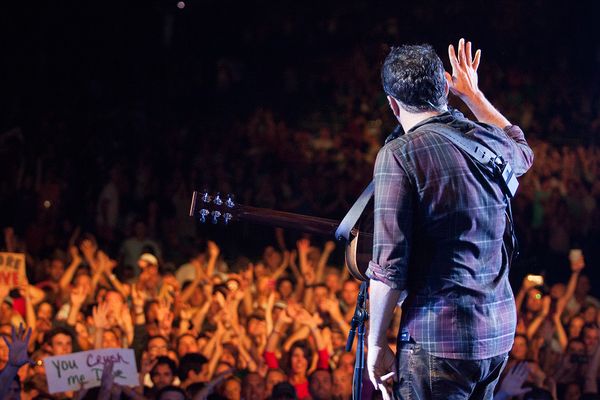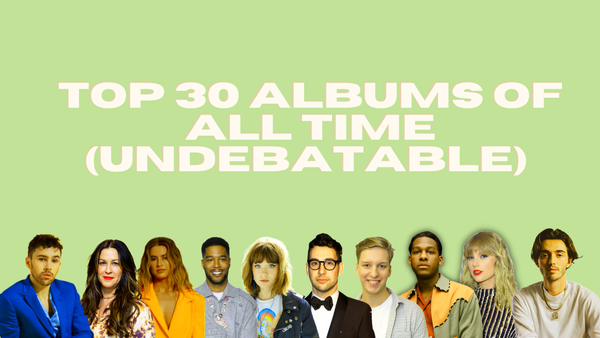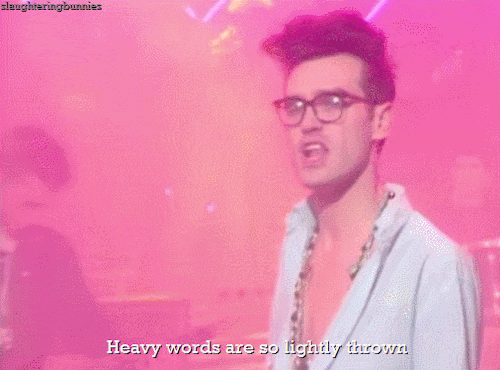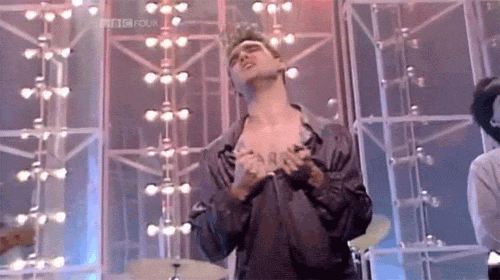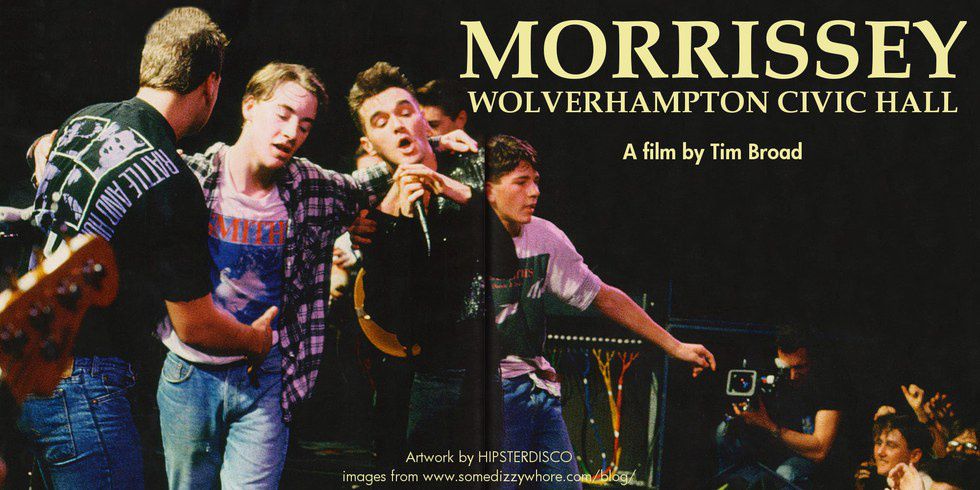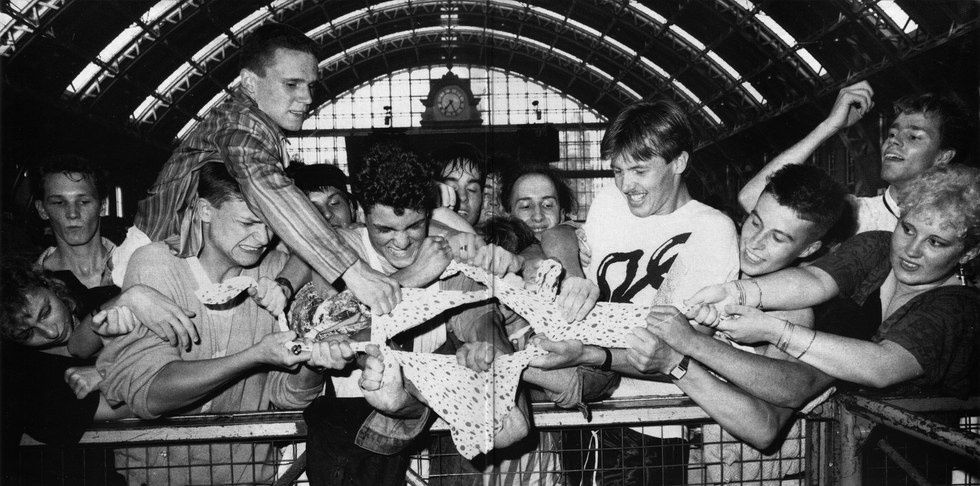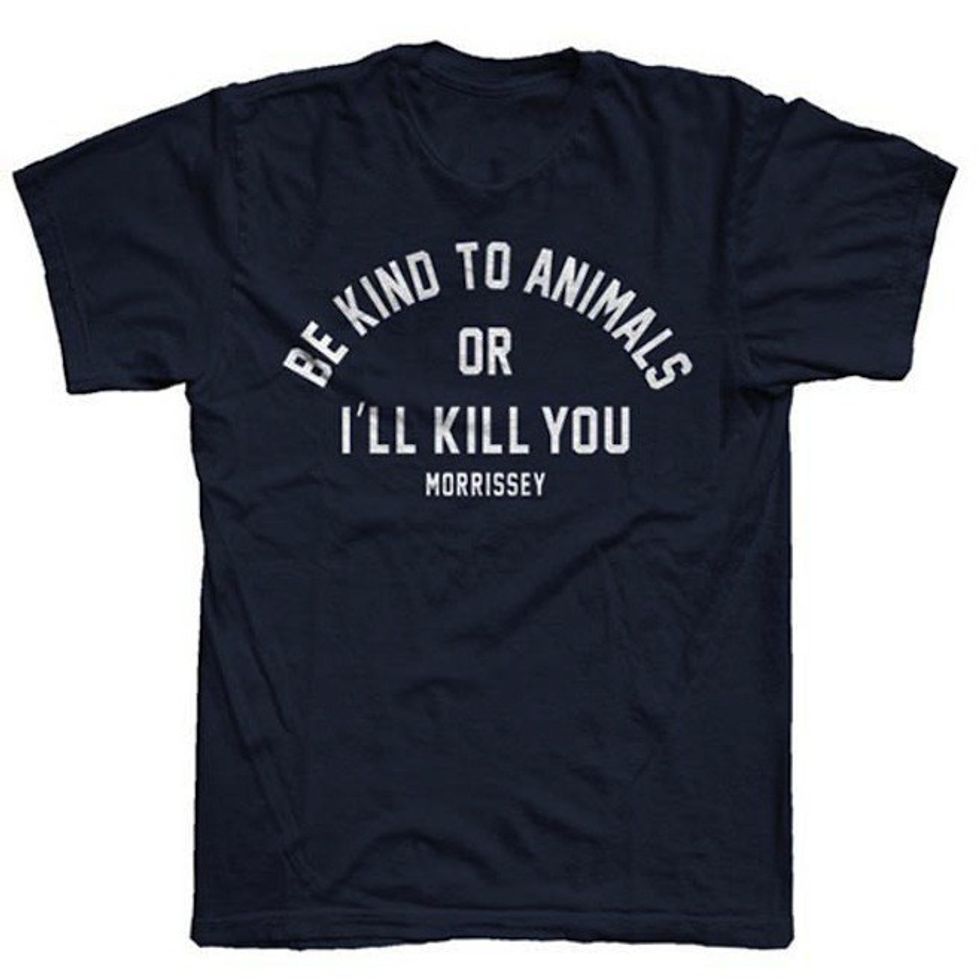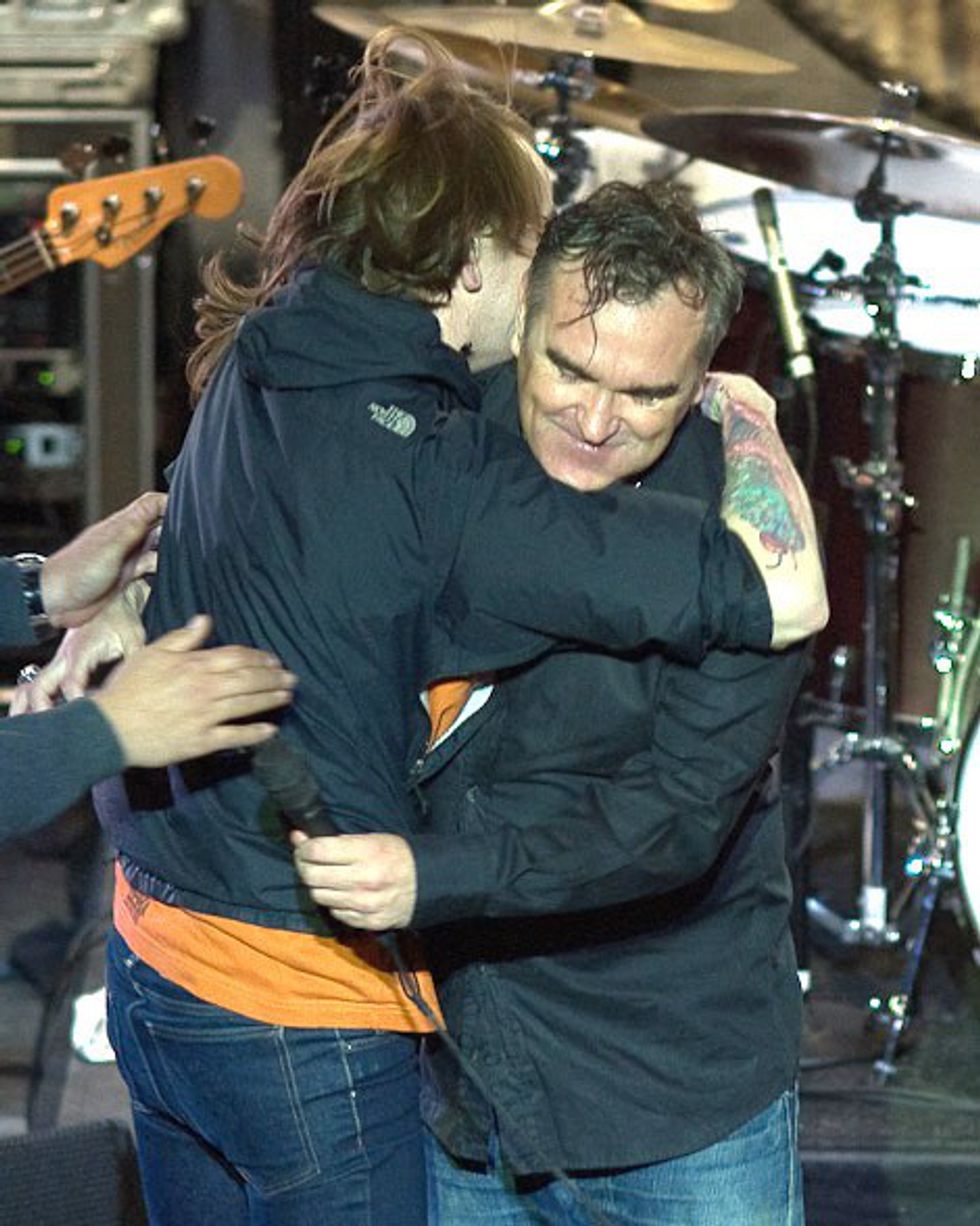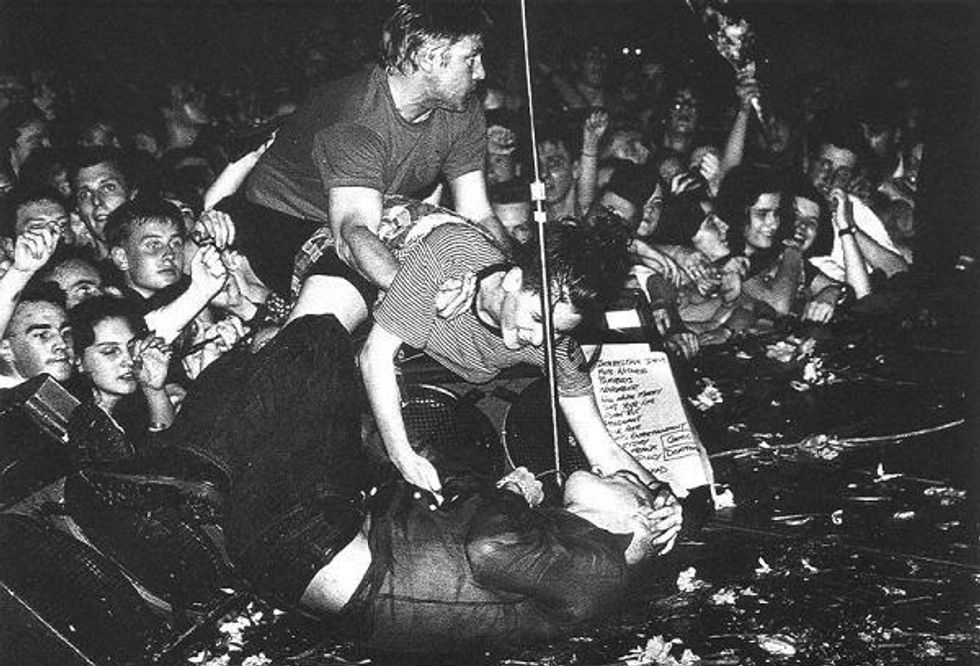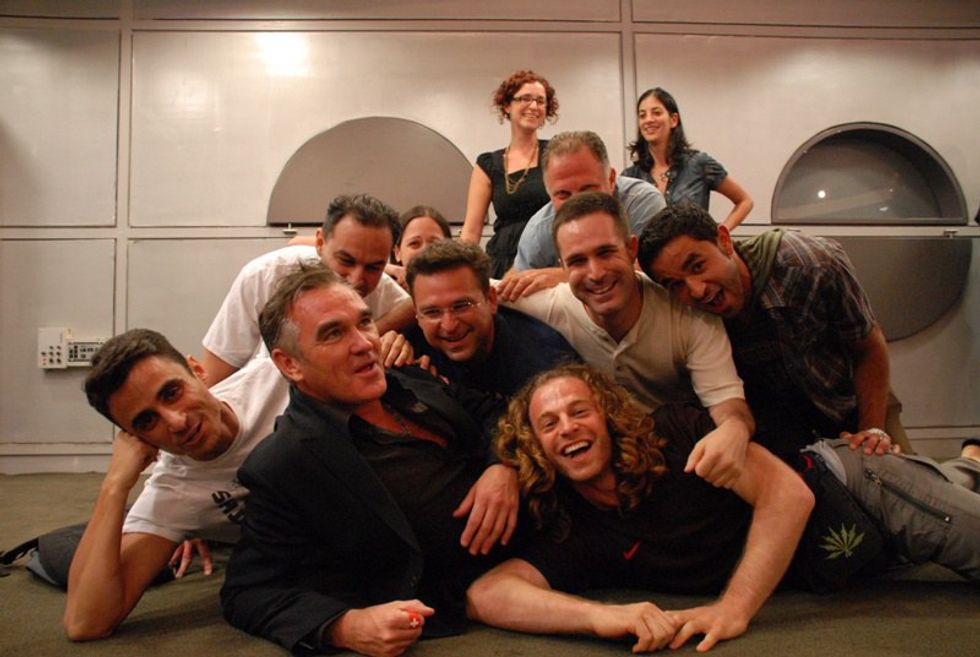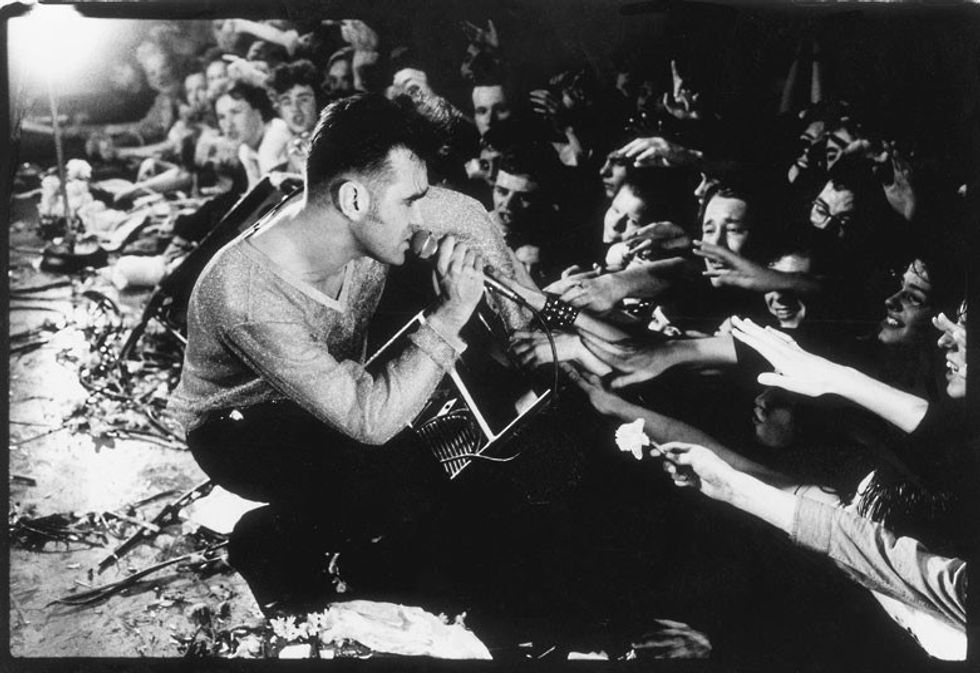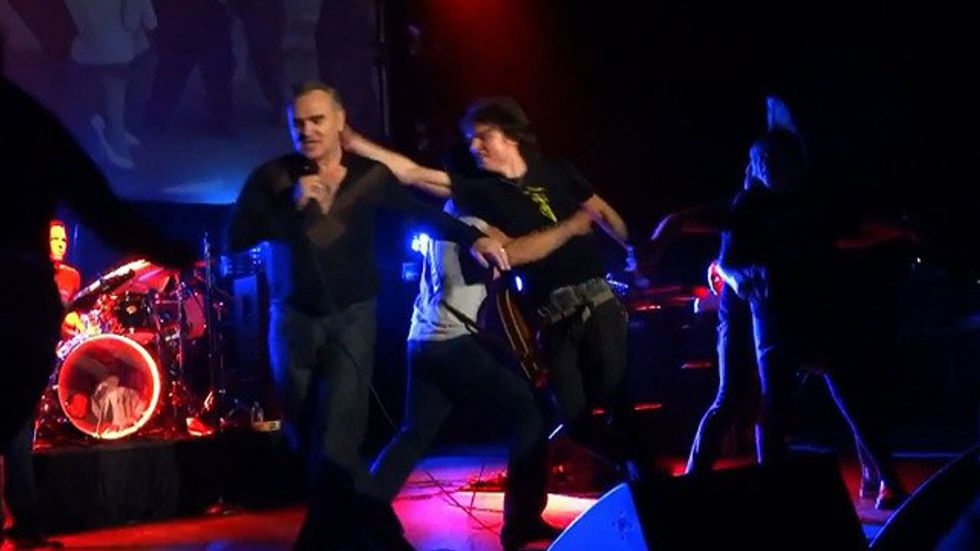The phenomenon of popular musicians having very fanatical fans probably first began with singers like Bing Crosby and Frank Sinatra, and those "fandoms" were soon succeeded and topped by the likes of Elvis Presley and The Beatles. Crazy, hysterical female fans of popular musicians were given tags throughout the years like "bobby soxers" then "teenyboppers," and now there's a current term, "fangirls," but there was one constant among all these tags. These groups consisted of young women between the ages of 12 and 25 with an unhealthy obsession with these musicians and all of them had a distinctive shriek that could make any mirror shatter. They formed fan clubs, they wrote adoring letters, they tried to break into dressing rooms, and they would even stage invade during a show just in an effort to touch their beloved idols, even if it meant they would get thrown out.
We still see this type of fandom today with the likes of One Direction or Justin Bieber where girls come to their shows and scream so loud that it would be actually difficult to enjoy and hear the concert (though I'm not sure a sensible person is capable of doing this, if you know what I mean), something that The Beatles were definitely accustomed to. In fact, The Beatles actually made a decision to stop playing live altogether, partially due to the fact that they became so annoyed at all the screaming and they often couldn't actually hear themselves playing over all the loud fans (and you also have to remember that the PA systems weren't very advanced at that time either).
So, there were male singers and bands like Frank Sinatra and The Beatles from every decade and genre that made female fans swoon. There were male and female pop stars like Madonna, Lady Gaga, George Michael and Justin Timberlake who made female and homosexual fans swoon. But, what about a musician or band that made every demographic -- young or old, male or female, gay or straight -- lose their minds? No one else comes to mind, except a man by the name of Steven Patrick Morrissey, or as you probably know him, Morrissey.
Morrissey first rose to fame as the lead singer of Manchester rock band The Smiths in the '80s. As frontman of The Smiths, he became known for his distinctive, tall, brown quiff, his unbuttoned, borderline-feminine shirts, his oversized NHS spectacles, and his regular stage prop: a handful of flowers. Now, due to that description and due to the fact that he was a particular admirer of people like James Dean and Marlon Brando, one would think that he was surely a homosexual. Quite the opposite. He actually spoke publicly about his asexuality. It was so strange for someone to visually and lyrically present himself in such a way that oozed of sexuality, but who actually was open about the fact that he never truly desired a physical relationship and to some extent, saw himself as above or beyond the idea of sex.
It was quite odd for a lead singer to flamboyantly rip off his shirt at nearly all his shows and sing about things like "a murderous desire for love" and whether "nature will make a man of me yet," but actually declare himself to be celibate. Throughout his career with The Smiths and still till this day as a solo artist, his lyrics were filled with sexual innuendos, sexual ambiguity and themes of physical intimacy, but it was as if he was untouchable. He presented himself with this "look, but don't touch" mentality, which only made people want him more. Morrissey was viewed as this "sweet and tender" man who sang of sexual confusion and sang with so much honest emotion that he claimed that he has never "performed" onstage, it was all 100 percent true emotion. His lyrics spoke to teenagers of both genders and all sexualities who also shared his interest in sex and maybe even similar feelings of sexual frustration. Though he was openly asexual, he actually became a sex symbol, which seems backwards, but he truly was (and is) a sex symbol in every sense of the term.
At his shows with The Smiths and his solo shows, stage invasions were not unusual. In fact, it happened all the time in the '80s and '90s, probably at every show, and it still happens to this day. Male and female fans would rush on stage in hopes of hugging Morrissey, this godlike figure who sang of the struggles of being a teenager and who spoke of love and sex in a way that was so poetic and beautiful. However, what is truly unmatched by any other musician is the fact that he made heterosexual men go just as crazy as his homosexual fans or female fans. Male, teenage, heterosexual fans of The Smiths and Morrissey (of which there were many) had a very distinct uniform.
They would wear white T-shirts, which displayed either Smiths album covers (all of which were designed by Morrissey) or photos of Morrissey. They wore blue denim jeans and and many of them even tried to mimic Morrissey's iconic quiff. They wanted to hug the man who spoke to them like no one had ever spoken to them before. They saw themselves as outsiders and Morrissey was someone who made them feel understood and who made them feel like they weren't alone. He was the one who made people feel that being awkward, reclusive or intelligent weren't undesirable characteristics, especially when it came to rock and roll, which is often associated with being extroverted and macho.
Morrissey definitely had his fair share of female and homosexual admirers as well, many of whom would throw flowers and underwear at him at shows and stage invade, but what really sets him apart is that his straight, male fans would do all of those things as well in equal measure, perhaps minus the underwear throwing. I mean this characteristic is really unprecedented in music. I'd be damned if I could think of another example of worship on this level from all different demographics of music fans. In regards to this phenomenon, Morrissey acknowledged it in an interview by saying, "a lot of my male followers have very anguished and rabid desires in my direction. And I find that quite historic." After Morrissey would rip off his shirt at his concerts, he would throw it into the crowd, where fans tried to get at least a small piece to take home and cherish before it was inevitably ripped to shreds.
Another thing that was distinctive when it came to Morrissey fans was that they wrote so many letters and tried to give him so many gifts (before, during and after his shows) that it was getting out of control. Eventually, his management started putting boxes outside of venues before his shows that read "gifts for Morrissey" for fans to present Morrissey with whatever they desired. What's also unique about Morrissey was that he welcomed stage invasions and he hugged fans back and shook their hands as they tried to kiss and hug him in mid-song, which, of course, only lead to more stage invasions. When asked about all the love he receives from his fans, Morrissey once said, "Can you imagine being kissed by hundreds of people? It was immensely uplifting."
What's truly remarkable is that these stage invasions still happen today. People of all ages show up to Morrissey gigs with flowers, handwritten letters and a hope of giving the man they love a hug. Morrissey is so beloved that for many people, going to one of his concerts is a religious experience. He's the preacher and the crowd are the loving, faithful followers. Morrissey's intelligent lyrics were a huge reason that people loved him so much (so much so that they read his lyrics like Bible verses). He sang about things that hadn't been discussed in rock or pop music before. He sang about his favorite poets -- John Keats, W.B. Yeats and Oscar Wilde -- but his wisdom didn't stop there. Sure, others sang about their hatred of the British monarchy like he did in "The Queen Is Dead," but he also sang about things like the National Front ("The National Front Disco"), the Kray twins ("The Last Of The Famous International Playboys"), the plight of the disabled ("November Spawned A Monster"), the ineffective Manchester school system ("The Headmaster Ritual"), police brutality ("Ganglord"), the greed and ego of the music industry ("Paint A Vulgar Picture"), black humor ("Girlfriend In A Coma"), and most notably, vegetarianism ("Meat Is Murder").
Morrissey was and still is one of the faces of vegetarianism, all because of The Smiths' second album, fittingly-titled "Meat Is Murder," which contained a song of the same name. Morrissey probably single-handedly converted more people to vegetarianism than any other one person. He was one of the people who brought this issue to the mainstream, and he wore this cause on his shoulder like no other. Many fans, after hearing that album, gave up meat for life and that's pretty amazing when you think about it. A pop-rock song about vegetarianism is something that no record company would ever push for, especially when the live version of the song was accompanied by a video backdrop of animals being slaughtered and abused.
All the venues at Morrissey shows have to go vegan or else he'll pull out of the show. In fact, there was one time where Morrissey was due to appear on a U.S. late-night talk show, but he pulled out after finding that one of the guests was going to be a cast member from the show "Duck Dynasty," a reality show about duck hunters. The animal rights organization, PETA, campaigns at all of Morrissey's shows because his fans are so dedicated to this cause, just like their idol. After The Smiths' song, "Meat Is Murder," Morrissey continued to address animal rights throughout his solo career as well with songs like "The Bullfighter Dies," which contains lyrics like "hooray, hooray / the bullfighter dies / and nobody cries."
So, not only did Morrissey attract an army of adoring fans from the '80s to the present, but he attracted fans of every demographic. Sure, Elvis and The Beatles had plenty of male, heterosexual fans, but those fans wanted to be like Elvis, Lennon or McCartney, none of them wanted to kiss or hug them like they did with Morrissey. Morrissey attracted fans who would do anything for him. They would (and still do) stage invade, they wore oversized glasses, they adopted his signature hairdo, they waved flowers at his shows, they despised the British royals like he did, they wrote letters to him, they got Morrissey tattoos and they kissed the ground he walked on. Sure, all those things are nothing new, but the fact that he converted so many people to vegetarianism is a pretty remarkable accomplishment, especially for an entertainer.
I hope one day that I, too, will be able to give the man that I listen to religiously a huge hug and a thank you. I may not be a vegetarian, but, thanks to him, I definitely look at eating meat in a different way and I've always been a huge proponent of animal rights, being equally disgusted at things like rodeos, horse racing, zoos and bullfighting. I also can thank him for making it acceptable and cool for rock bands to not have to look and act overtly-macho, but they also don't necessarily have to look androgynous either. He's a true, godlike revolutionary whose fans are unmatched by any other group of music fans. I mean, look at these pictures, and still try to tell me that you don't want to give him a bear hug.

